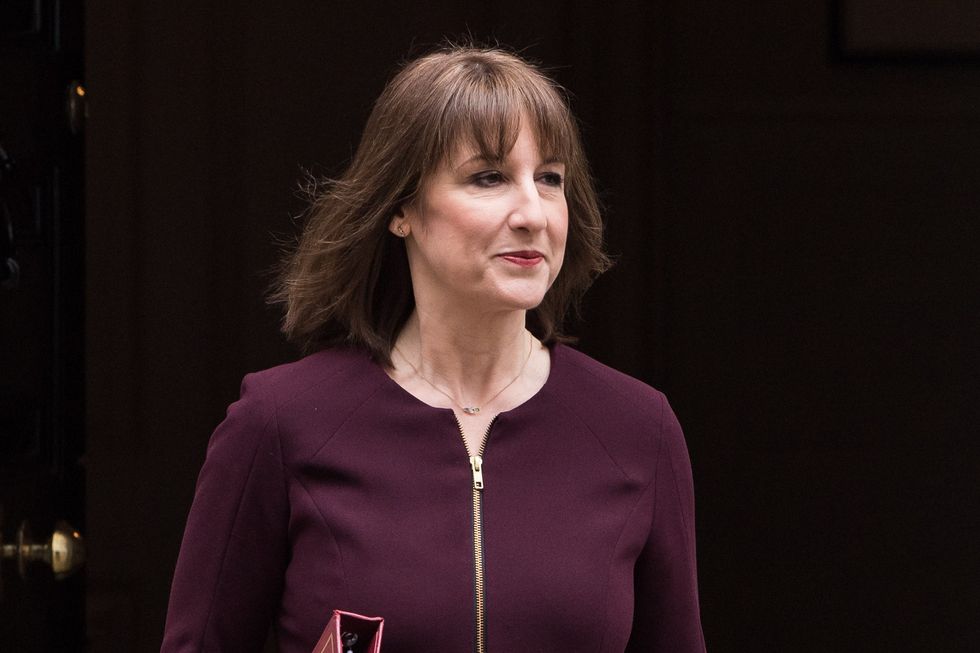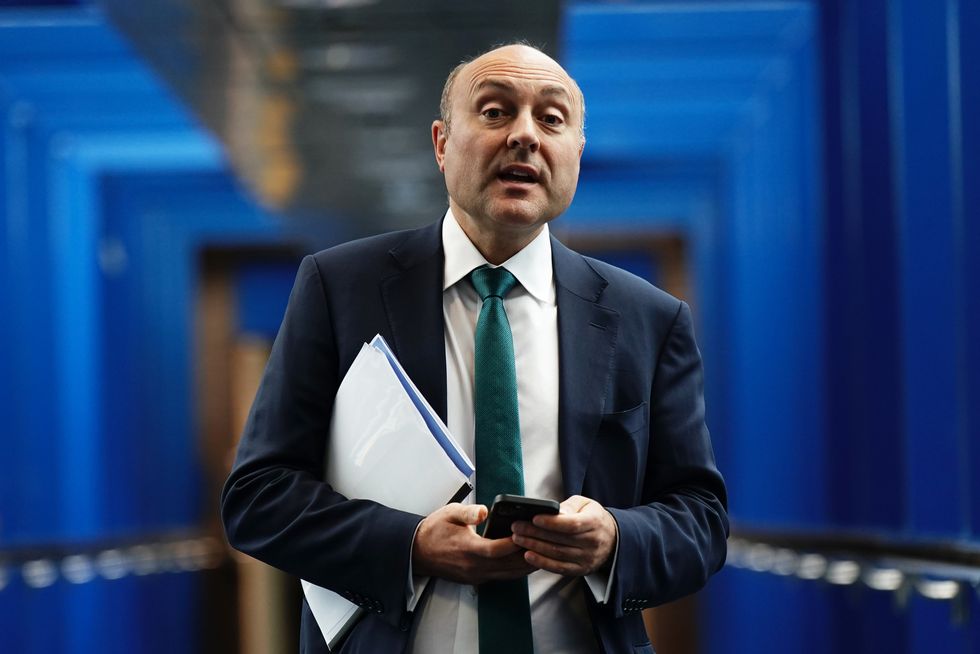Businesses in Sheffield give their take on Rachel Reeves's Spring Statement
GB NEWS
Top Tory Andrew Griffith and Reform UK leader Nigel Farage both warned about an exodus of high earners
Don't Miss
Most Read
Trending on GB News
Labour's war on wealth is expected to leave a tax revenue shortfall of almost £1billion amid a fresh exodus of high-earners, damning analysis has revealed.
Rachel Reeves's changes to so-called "non-doms" is set to kick in on April 6.
The Chancellor had initially promised to "abolish non-dom status once and for all" as it enables millionaires to avoid paying British tax on foreign income and capital gains.
Reeves has since proposed axing a Tory exemption that would have let "non-doms" move money into an offshore trust before the new regime takes effect, thereby allowing them to avoid paying inheritance tax.

Chancellor of the Exchequer Rachel Reeves leaves 11 Downing Street ahead of the announcement of the Spring Statement
GETTY
Dozens of Labour rebels heaped pressure on No11 to renew a tax raid on high-earners after the Chancellor used her Spring Statement to announce cuts to Britain's ballooning benefits bill of around £4.3billion.
The Government's own impact assessment showed welfare cuts will push 250,000 Britons into poverty, including 50,000 children.
However, the decision to alter "non-dom" rules will likely prompt thousands of millionaires to flee Britain.
Indian entrepreneur Lakshmi Mittal, who moved to London in 1995, is expected to leave the UK.
Friends of the former Labour donor claim the industrialist is "exploring his options" ahead of the major change.
However, analysis by Evelyn Partners found that a "non-dom" exodus could leave the UK facing a multi-billion pound shortfall.
LATEST DEVELOPMENTS:
Lakshmi Mittal, CEO of ArcelorMittal, arrives at the Elysee palace in Paris on April 10, 2015
GETTY
The wealth advisory firm predicts that more than one-in-four "non-doms" will leave the UK.
A report from Oxford Economics found that a departure rate of 32 per cent would see the Treasury haemorrhage around £900million annually by 2029/30.
Industry insiders have also warned that the Government's financial projections were based on a flawed study showing just a fraction of "non-doms" would leave for pastures new.
However, GB News understands that Italy, Portugal, the United Arab Emirates and Switzerland have all been making their own tax regimes more competitive to accommodate for disgruntled millionaires looking to flee Britain.
 Shadow Business Secretary Andrew Griffith launched into a scathing tirade at the party in powerPA
Shadow Business Secretary Andrew Griffith launched into a scathing tirade at the party in powerPAReform UK leader Nigel Farage and Shadow Business Secretary Andrew Griffith have both warned that an exodus could leave ordinary British workers footing the bill for the lost revenue.
Griffith told GB News: "The exodus of talented wealth creators is fast turning into a crisis for the Government.
"These are top investors who choose to come to the UK, we cannot afford to lose them.
"The time to act is now. Labour must stop its war on wealth creators or it will be average taxpayers who pay the price with lost jobs and tax revenue."
 The Clacton MP, who was joined by around 10,000 Reform UK members at the Utilita Arena, set out his stall ahead of a major test for his party on May 1PA
The Clacton MP, who was joined by around 10,000 Reform UK members at the Utilita Arena, set out his stall ahead of a major test for his party on May 1PASpeaking at Reform UK's Local Election launch in Birmingham on Friday, Farage added: "Ten thousand millionaires left last year and almost unbelievably, UBS bank estimates that 500,000 wealthy people will leave the UK before 2028.
"This is a disaster. This means that our tax revenues will fall off a cliff. We cannot help those on benefits, we cannot help those on lower incomes, we cannot help those that need to access public services if we get rid of those who pay that tax because they leave to go to Monaco, Dubai, America or wherever else it is."
After New World Wealth revealed a 157 per cent increase on millionaires leaving the UK in 2024 compared to the previous year, Reeves confirmed the Treasury was looking at introducing measures to attract high-earners to stay in Britain.
The tweak included changing the Temporary Repatriation Facility, a three-year scheme to help former "non-doms" bring their assets to the UK at a discounted tax rate.
However, a Treasury spokesman at the time stressed such a change would not impact the £33.8billion it expected to raise over the next five years.
The People's Channel has approached the Treasury for comment.








